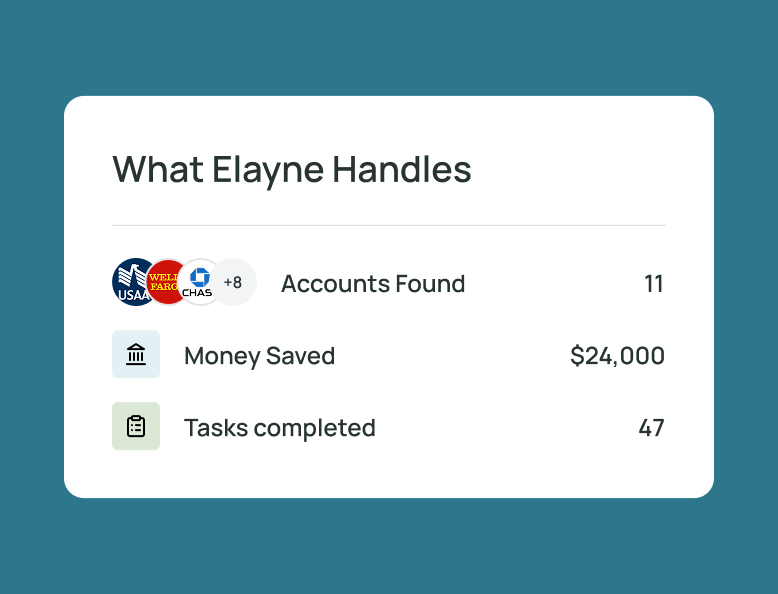Key Takeaways
- Without a plan, crypto assets can be permanently lost after death.
- Naming a digital executor and securely sharing access information is essential.
- Crypto can be passed on through wills, trusts, or dedicated digital asset plans.
- Protecting your digital wealth requires both legal and technical preparation.
Why Crypto Needs a Different Estate Plan
As cryptocurrency becomes a more common part of personal wealth, many people are starting to ask: What happens to your crypto when you die?
Unlike traditional bank accounts or property, crypto doesn’t automatically transfer to next of kin. Without clear instructions and access details, these assets could be locked away forever.
How Digital Assets Differ From Bank Accounts
Cryptocurrency such as Bitcoin, Ethereum, or stablecoins, exists entirely online and is stored in wallets, either software-based (apps or exchanges) or hardware-based (physical devices). Access depends entirely on private keys or recovery phrases, long strings of letters and numbers that prove ownership.
There’s no bank manager or help desk to reset a password. If private keys are lost or unknown to beneficiaries, the funds become permanently inaccessible.
Why Private Keys Matter
Private keys are the foundation of crypto ownership. They’re also the greatest vulnerability. If no one knows where to find them, even a perfectly written will can’t unlock your assets.
For many families, this results in unclaimed wallets or disputes about ownership, issues that can be avoided through early, secure planning and an organized after-death checklist.
What Happens to Your Crypto When You Die Without a Plan?
Without a plan, cryptocurrency can quickly become lost wealth. Private keys or recovery phrases are essential to access wallets, and if no one knows them, the funds are effectively gone. Even if wallets are linked to exchanges, strict security and privacy policies may prevent access without the account owner’s credentials.
Common outcomes of an unplanned crypto inheritance include:
- Permanently lost funds due to inaccessible wallets or forgotten credentials
- Unclaimed or orphaned wallets, where nobody can prove ownership
- Legal disputes among beneficiaries, especially if some are aware of assets but lack access
Because crypto doesn’t follow the same procedures as traditional accounts, proactive planning is critical to protect your digital wealth. It’s the only way to ensure your loved ones can access what you’ve built. Since cryptocurrencies operate outside traditional financial systems, it's crucial to plan ahead to safeguard your digital assets. This proactive approach is the only way to guarantee your beneficiaries can access the wealth you've accumulated.
How to Include Crypto in Your Estate Plan
Adding Crypto to a Will or Trust
The first step is simple but often overlooked: formally include your crypto in your estate plan. List it in your will or trust as part of your digital assets, but never write your private keys directly into those documents, since they become public during probate.
When planning, think of crypto like any other property. It needs clear documentation, a plan for secure access, and defined beneficiaries. A good starting point is reviewing your broader estate settlement steps to see how digital assets fit in.
Naming a Digital Executor
Appoint a digital executor, someone familiar with both crypto and online security. This person will be responsible for following your instructions and ensuring assets are transferred correctly.
A digital executor’s responsibilities often overlap with traditional estate roles. Strong communication and organization, as outlined in executor role management strategies, are essential for keeping everything secure and on track.
Storing Access Information Securely
- Use encrypted storage or secure hardware wallets
- Consider password managers with legacy access features, such as LastPass’ Emergency Access or Bitwarden’s trusted emergency contacts.
- Keep physical backup copies (in a safe or safety deposit box) and make sure at least one trusted person knows how to locate them
And remember, even if someone once held power of attorney, that authority ends after death. Review what happens next in power of attorney transitions after death to avoid confusion later.
Legal Steps and Paperwork to Secure Crypto
Crypto should be listed as part of your total estate inventory so it’s not forgotten or unaccounted for. When an executor settles an estate, they may need to verify wallet balances, review transaction histories, and disclose holdings to probate courts or tax authorities.
In many cases, coordination between your estate team and legal counsel can simplify this. You can see how this works in practice through how Elayne and estate attorneys collaborate, where technology and legal expertise combine to make settlements smoother.
Keep a record, either digitally or physically, of where your wallets are stored and how to access them. This ensures your executor can act without guesswork.
Tax and Reporting Considerations
For tax purposes, cryptocurrency is treated as property, not currency. That means it may be subject to both estate and capital gains taxes. Executors are responsible for reporting these assets correctly.
For accurate valuation, check the IRS virtual currency guidance. You can also simplify reporting by following the IRS death notification process, which outlines what forms and deadlines apply.
Because laws evolve quickly, it’s worth seeking legal support. For administrative tasks, Elayne provides estate settlement assistance that helps families handle both crypto and traditional assets without unnecessary stress.
Tools for Managing Crypto After Death
Several tools can simplify crypto inheritance planning:
- Hardware wallets (Ledger, Trezor) with securely stored seed phrases
- Password managers with emergency access features
- Crypto inheritance platforms, such as Casa or Safe Haven, which allow verified beneficiaries to claim assets after death
For a broader overview of what happens to crypto after death, see Investopedia’s guide.
How to Protect Loved Ones from Crypto Scams
Scammers often target families after a death, exploiting grief or confusion to steal assets.
To reduce risk:
- Avoid sharing private keys via email or text
- Educate beneficiaries about common crypto scams
- Use identity protection and fraud monitoring tools
Simple steps like, setting up fraud monitoring and protecting against post-death identity theft, can make a big difference. Even small measures, such as learning how to safeguard personal data, prevent long-term issues like ghosting or unauthorized access.
Coordinating Crypto With the Rest of the Estate
Your crypto doesn’t exist in isolation. It’s part of your overall estate, alongside homes, accounts, and insurance policies.
Working with professionals who understand both the digital and legal sides can make a major difference. That’s why, at Elayne, we connect families with estate attorneys, ensuring your crypto transitions as smoothly as your other assets.
Emotional and Practical Support After Loss
Settling crypto is one part of the process, emotional recovery is another. Grieving families often face both at once. Elayne offers compassionate help through support after loss, including tools for family members navigating digital accounts.
Take the Next Step: Protect Your Digital Legacy
Cryptocurrency offers independence and privacy, but without planning, that freedom can turn into a burden for loved ones.
Take the time now to document your holdings, secure your keys, and include crypto in your estate plan. Doing so ensures your assets become part of the legacy you intend to leave behind.
FAQs About Crypto and Inheritance
Q: What happens to my Bitcoin or Ethereum when I die?
A: Without access instructions, it may become permanently inaccessible.
Q: Can crypto be inherited like other property?
A: Yes. With a proper estate plan, crypto can pass through wills, trusts, or digital asset agreements.
Q: Should I include my crypto in my will?
A: Definitely, but keep your keys stored separately and securely.
Q: Who should manage my crypto after I die?
A: A digital executor or trusted individual familiar with crypto and online security.
Q: Is crypto taxed after death?
A: Yes. It’s considered property and may be subject to estate and capital gains taxes.
*Disclaimer: This article is for informational purposes only and does not provide legal, medical, financial, or tax advice. Please consult with a licensed professional to address your specific situation.














































